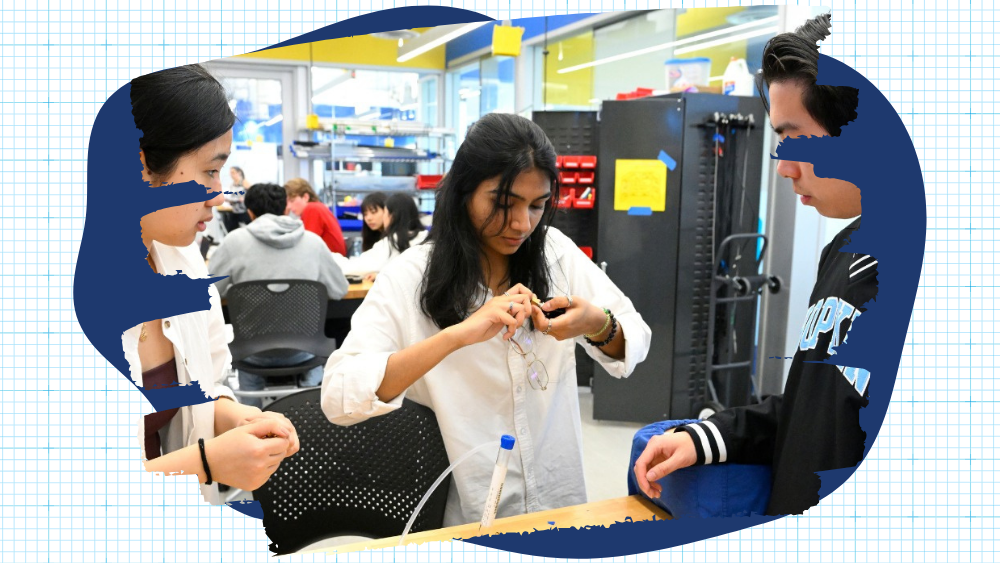Those who work in the biopharma industry often see more setbacks than successes. To understand how to overcome failures, BioSpace spoke with two experts on coping with setbacks and staying positive.
Courtesy Getty Images
The biopharma industry often has more setbacks than successes, and although those successes may have phenomenal impacts, keeping a positive attitude can sometimes be challenging.
“Embracing failure is a big part of what we do,” Volker Herrmann, CEO of Sonata Therapeutics, told BioSpace. “If you joined the industry and assume that the majority of what you should be doing will translate into success, at some point, you’re going to be very frustrated.”
Dealing with that requires a certain mindset for individuals and for the organization itself.
In the companies Herrmann has headed, understanding the purpose of the organization and what motivates its people is important. “I ask my teams to write me a letter once a year in which they talk about why they are working here, specifically, rather than at some other company.”
Sonata celebrates failures as well as successes by encouraging thoughtful risk-taking with the understanding that some ideas won’t succeed, even when each step is well-executed.
Therefore, “I ask scientists to present honestly about what we were trying to do, what went wrong and what insights we can take away as an organization to do it better the next time. They will be rewarded and celebrated as much as those whose projects succeeded.”
This, he says, creates a culture of innovation.
Herrmann’s insights are born from experience. During his years at Pfizer, he worked in the area of CNS pain, which he said affects several of his close family members and has always been an “area of significant setbacks.”
When Merck’s Vioxx, a COX-2 inhibitor, was taken off the market in 2004 after a study linked it to heart attacks and strokes, it affected the entire field. At the time, Pfizer had two drugs in the same class, and small studies suggested that one of those – Bextra – could have similar risks for patients undergoing open heart surgery.
“Withdrawing Bextra from the market was a huge setback because, at the time, we firmly believed that these drugs had enormous benefit for patients,” Herrmann said. “It was a devastating experience for many of the researchers and the medical teams.”
Make a Plan to Deal with Failure
That experience is indicative of failure in general. “The biggest problem with failure is not the failure itself,” said Stefan Falk, executive coach and author of the forthcoming book, Intrinsic Motivation.
“The problem is the emotional intoxication you get, which often is out of proportion to the actual failure itself,” Falk said. “You may feel that what you’ve done is useless, but if you take time to understand the failure, what led to it and its actual effect, you may see it’s a much smaller problem than the emotional tension (it generates).”
Pfizer understood that. It reviewed its Bextra data, asking whether there was anything its teams had missed or had done wrong. “It was a helpful exercise,” Herrmann said, that showed there probably was nothing that should have been done differently.
“In my world,” Falk said, “there’s only one situation in which you should feel bad for a failure: when you know you haven’t done everything you should have done to be successful.”
Success is rarely a given, so Falk advised devising a plan that is sufficiently flexible to deal with contradictions and setbacks, and that lets you change your plan.
“If we look at why people fail, I think it has to do with lack of planning,” Falk said. That includes contingency planning and risk assessment. “Just because everything worked really well today is no guarantee that everything will work well tomorrow,” he stressed.
The need for planning extends – perhaps especially – to things people find uncomfortable, like interviewing for a new position, presenting papers or being interviewed by the media.
Focus on the “Big Picture”
As a human performance expert specializing in high-pressure environments, Falk has worked with some 60 organizations in North America and Europe, including elite hockey players. He equates his coaching style to that of a tennis coach – in other words, daily practice on specific elements.
When he began executive coaching, he recalled, “We had long-term goals and broke them down on a monthly basis.” He found that not even dedicated people delivered on their monthly goals. “People were stuck in their daily habits.”
To achieve results, he asked his clients to define their desired outcomes and identify tactics to attain them. This resulted in setting daily goals that would move them closer to their desired outcomes. Later, he and his clients would analyze what they did and what they achieved or learned.
That analysis was important, he says, to overcome the peak-end rule in which people focus on the emotional peak – whether good or bad – of an experience, and the end of that experience while ignoring the rest of that experience. So, if something truly negative occurs during an experience or project, people tend to see the experience as negative even though mapping may show more positive elements than negative.
“After a few weeks, they began to report amazing things, from sleeping better to having a greater sense of achievement and executing objectives with greater precision,” Falk said.
Strategies to cope with setbacks also involve seeing the big picture. Focusing only on individual needs does people a big disservice and creates anxiety, he said. Instead, “Think of your tasks in terms of the value they bring to others. In an organization, the purpose of every job is to enable someone else to do something else…even if that’s only for them to avoid doing your job.”
Bringing value is exciting, Falk said. “It starts my brain working. I get excited, and what is one of the most exciting things is to be involved in solving some kind of complex problem. That’s a very powerful way of thinking about your daily goals and how you set up the desired outcome.”
“Mindset is a powerful thing. In industries with high failure rates, I find it useful to embody the mindset of an elite athlete in a team sport,” Falk said. By seeing yourself as part of the team, it becomes more important to grow and develop every day to contribute to the team, adding value today, and to any future organizations you may join.






